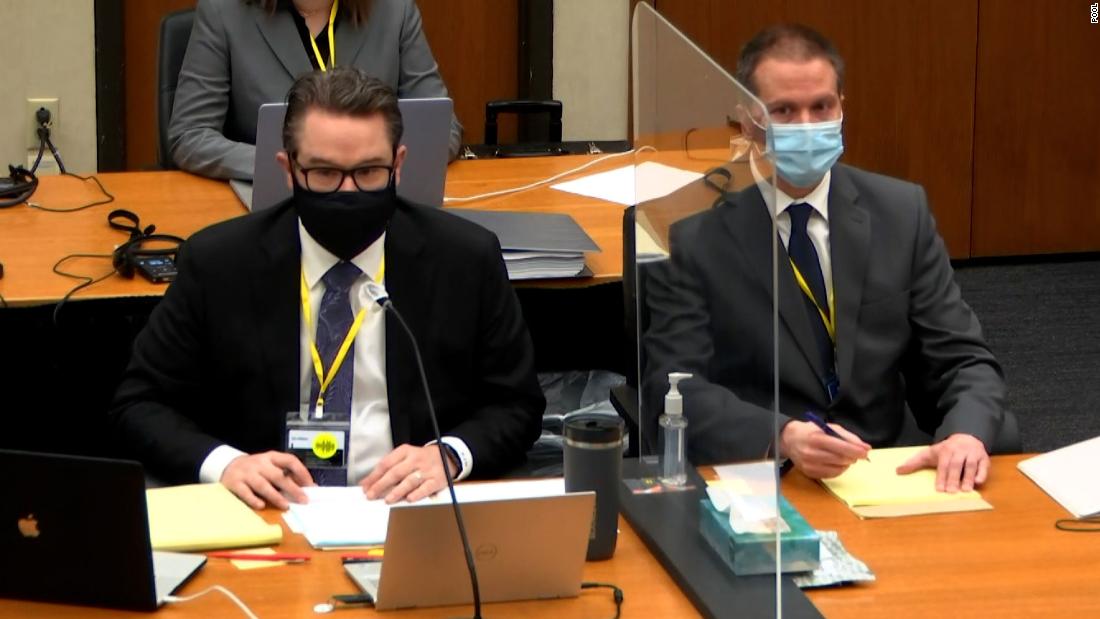Prosecutors intend to call Hennepin County Chief Medical Examiner Dr. Andrew Baker, who ruled Floyd’s death last May a homicide, identifying the cause as “cardiopulmonary arrest” that occurred during “law enforcement subdual, restraint, and neck compression.”
Baker’s testimony will come on the 10th day of Chauvin’s trial, the culmination of a week filled with expert testimony by not only medical experts, but also policing experts who testified Chauvin violated policy and used excessive force on Floyd.
The Hennepin County Medical Examiner’s official autopsy made no mention of asphyxiation as a cause of death, which has been a key pillar of prosecutors’ case.
A pulmonary critical care doctor testified Thursday that Floyd died from a “low level of oxygen” when Chauvin pinned him to the street with his knee, restricting Floyd’s ability to breathe. Chauvin has pleaded not guilty to second-degree murder, third-degree murder and third-degree manslaughter charges.
Dr. Martin Tobin of Chicago identified four main reasons why Floyd died: the handcuffs and the street acting as a “vise;” Chauvin’s left knee on his neck; Floyd’s prone position; and Chauvin’s right knee on Floyd’s back, arm and side. Combined, these limited Floyd’s ability to expand his lungs and narrowed his hypopharynx, a part of the throat that air passes through.
“The cause of the low level of oxygen was shallow breathing,” Tobin said. “Small breaths. Small tidal volumes. Shallow breaths that weren’t able to carry the air through his lungs down to the essential areas of the lungs that get oxygen into the blood and get rid of the carbon dioxide.”
Floyd’s preexisting health conditions and drug use were not relevant to his death, Tobin said.
“A healthy person subjected to what Mr. Floyd was subjected to would have died,” he said.
The medical analysis is important to the prosecution’s case that Chauvin was a substantial cause of Floyd’s death when he put his body weight on Floyd’s neck and back for over nine minutes — causing death by “positional asphyxia.” Chauvin’s defense attorney Eric Nelson has argued that Floyd died of a drug overdose and preexisting health conditions.
Tobin rejected the theory that fentanyl played a role in Floyd’s death, along with Dr. Bill Smock, an emergency medicine physician and police surgeon for the Louisville Metro Police, who also testified Thursday.
People who overdose on fentanyl become listless and stop breathing, while Floyd was desperately trying to breathe, Smock said.
“That is not a fentanyl overdose,” he said. “That is somebody begging to breathe.”
CNN’s Eric Levenson, Aaron Cooper and Brad Parks contributed to this report.


